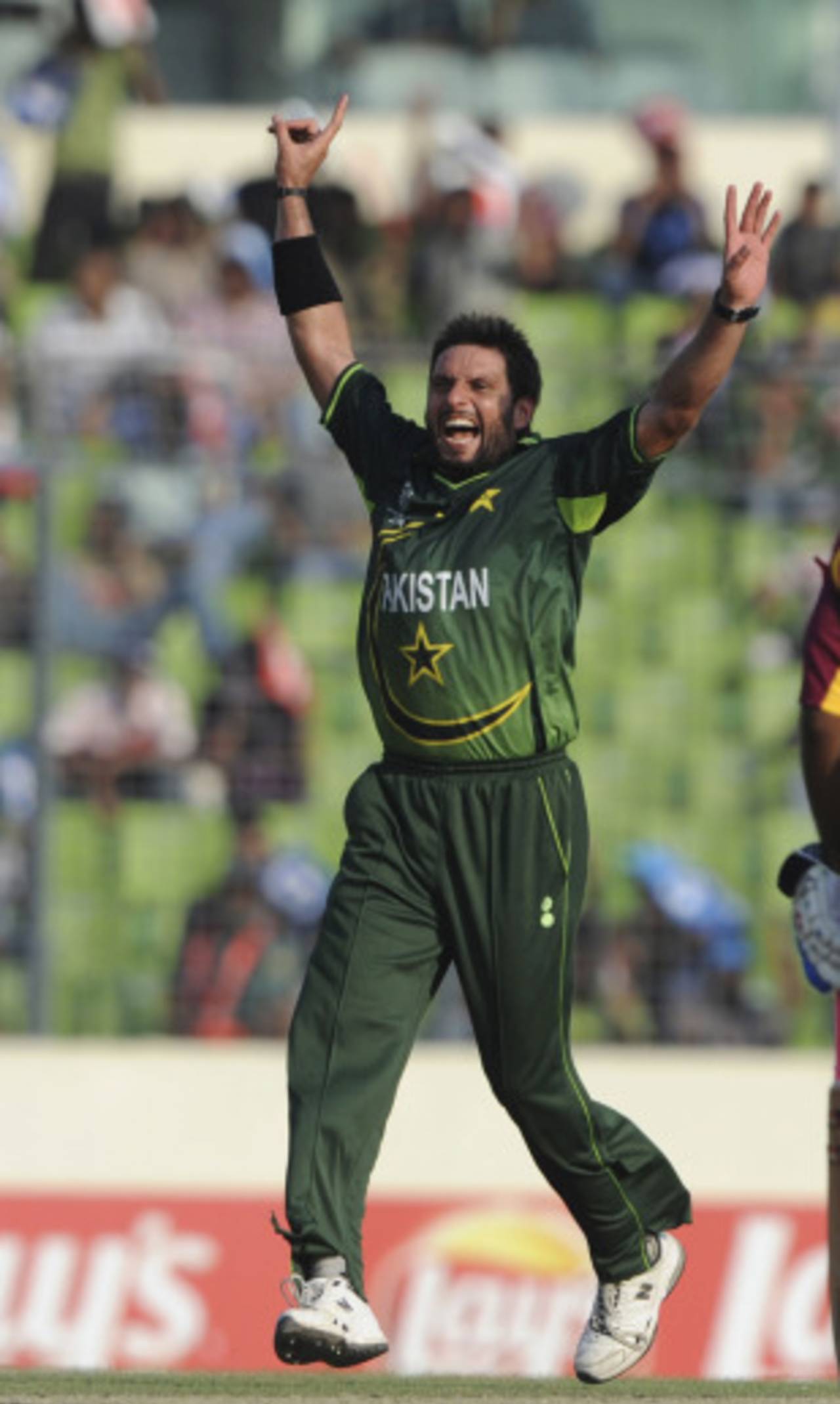Until two weeks before this World Cup began, it mustn't be forgotten,
Shahid Afridi wasn't even captain of Pakistan. Misbah-ul-Haq was a strong contender and a number of players were said to be unhappy with Afridi's gift - and curse - for public straight-talk, particularly when criticising players.
Yet, in four days time, he may well be a World Cup winning captain. He continues to be appointed on a series-by-series basis and he must be the only captain in the world who doesn't complain about that unstable arrangement. Every game, he insists after all, he plays as if his first or last. He thrives on it.
So now he leads his team into a World Cup semi-final, precisely as he said he would before the tournament began. It's India, so it will be among the biggest games he has played, and for many of his younger players, a game that can make a career. Ian Chappell has criticised him, but really? Afridi, as captain, taking Pakistan this far? If you'd said it two years ago, you would have been committed.
The success of any Pakistan captain lies basically in his own individual success. Players respond naturally to the man who does well, because they think that makes him strong, the man who can get stuff done, the man who can make 'em or break 'em. Afridi has done it by becoming arguably the most important player in the side and its very personification. Few would have expected him to be the leading wicket-taker at this tournament so far but here he is, having bowled vital, wicket-taking spells throughout. Take him out and the nature, to say nothing of the threat, of the side is greatly diminished.
Without ball in hand, on the field, he has led by energy, keeping his players alert and on edge. Occasionally he has shown tactical awareness. No Pakistani captain had opened with spin, for example, until he did so with Abdur Rehman against New Zealand. Against West Indies, he picked Saeed Ajmal to combat their left-hand batsmen but opened with Mohammad Hafeez, whose spell set up the game. He has brought back his strike fast bowlers at the right time, early when needed.
Behind him, Waqar Younis has provided a very organic assistance. They haven't used any gizmos, there is no nutrition expert or fitness guru or mental conditioner. They've just made the players work damned hard in practice and allowed them to play a game of bat and ball on the field.
Probably the two smartest things Afridi has done have been away from the play. One, he has taken on board a clutch of senior players in the side, men such as Younis Khan, Misbah-ul-Haq, Abdul Razzaq and Umar Gul. He has mostly just let them be, trusting their experience, but involving them as well on the field and in training, where Younis and Misbah have been particularly influential.
And in the public eye he has backed each and every one of his players, making some tough calls. Players from the periphery, like Razzaq, to the under-fire, like Kamran Akmal (apart from a brief period of wobble in the immediate aftermath of New Zealand) to the out-of-form, like Ahmed Shehzad and Mohammad Hafeez, have been persevered with. He has backed them in the name of stability, in the name of a winning combination. Not all has made sense, but togetherness has been built, hardly a murmur from the dressing room.
"Some things I do very emotionally in team meetings, to get the boys fired up and they do get fired up because of that," he said ahead of the semi-final in Mohali. "We are an emotional people, both countries. I don't think that the unity of the team, or where we have reached, it is not down to me. I don't want to take credit for that. When the team does well, 15 out of 15 do well and that is when you get a proper unit. All the credit I will give to the 15 guys, the seniors, our management, our coaches, they have made all the effort."
It was a good appearance ahead of the game, full of humour, bonhomie, wisecracks and digs; Afridi in a good, relaxed mood, comfortable as captain of Pakistan. To follow him through Sri Lanka and Dhaka has been to humanise him, an expressive man given to moods, but a naturally charismatic presence in any gathering. Over the last month and more, he has also been surprisingly focused, surprising given his generally short attention spans.
But in every sense, come what may on Wednesday, Afridi has been a true leader of men, with them on bad days and good days, taking them ultimately to a place few expected them to reach.
Osman Samiuddin is Pakistan editor of ESPNcricinfo
